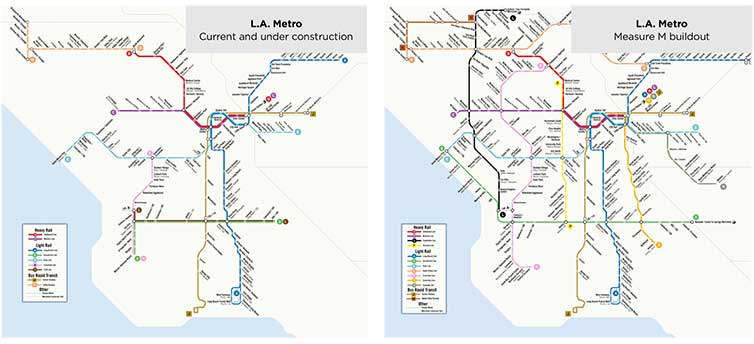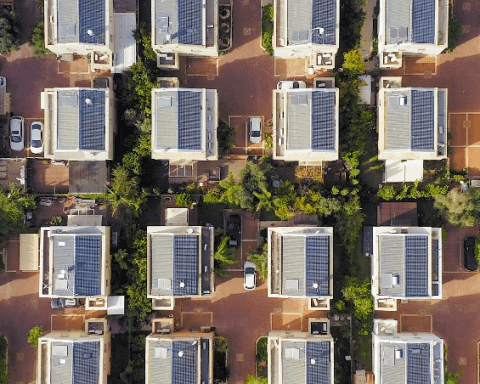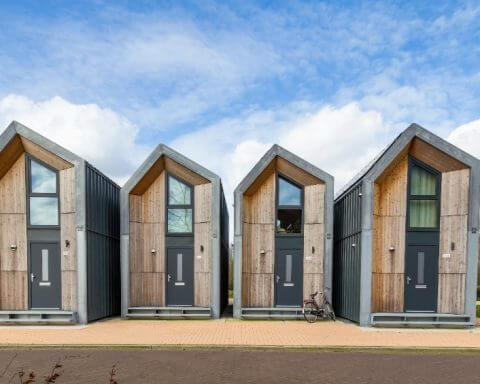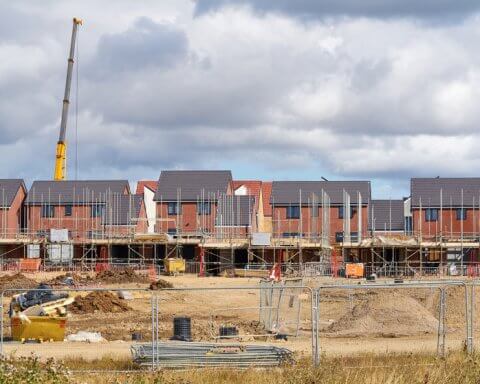Voters in Los Angeles County in November overwhelmingly approved Measure M, a ballot initiative that increases the local sales tax to pay for an aggressive expansion of public transit and other infrastructure needs. Measure M would maintain in perpetuity a half-cent sales tax increase put in place by voters in 2008, which has funded the construction of several new light rail lines and which would have expired in 2039. The measure also increased sales taxes by an additional half percentage point, which will raise an estimated $120 billion (U.S.) over the next four decades.
The Metropolitan Transit Authority (MTA) released a transit blueprint last March outlining which transit and highway improvement schemes would be funded if the measure passed. Mindful of criticisms that past transit plans unfairly benefited the downtown core at the expense of suburban taxpayers, the blueprint called for nearly doubling the MTA’s rail network with projects scattered strategically throughout the county. “There will not be everything for everyone, but there’s something for everyone,” said Los Angeles mayor Eric Garcetti in announcing the plan.
Some of the dozen rail projects include the long-awaited $8.5-billion rail tunnel through the Sepulveda Pass, and an extension of the Gold Line from Azusa to Claremont. It also spends billions building out the county’s rapid bus system, as well as repairing and in some places expanding highways and bike infrastructure.
Los Angeles has spent the past several decades trying to shift its citizens away from cars and into alternative forms of transportation, paying for over 160 km in new rail lines with a series of ballot-approved tax increases. Los Angeles continues to suffer from crushing levels of traffic, and results have been mixed in changing Angelinos’ transportation habits thus far. Transit planners are hopeful that Measure M will ultimately triple the number of transit riders in the county, while reducing traffic by 15 per cent.
Over 71 per cent of Angelinos voted in favour of the measure, more than the two-thirds majority needed to pass tax increases under California law. Internal polling from the Yes vote showed overwhelming support among Latinos and millennials, with the lowest support coming from older and more affluent voters.
- CK Staff
- CK Staff
- CK Staff
- CK Staff
- CK Staff
- CK Staff
- CK Staff
- CK Staff
- CK Staff
- CK Staff
- CK Staff
- CK Staff
- CK Staff
- CK Staff
- CK Staff
- CK Staff
- CK Staff
- CK Staff
- CK Staff
- CK Staff
- CK Staff
- CK Staff
- CK Staff
- CK Staff
- CK Staff
- CK Staff
- CK Staff
- CK Staff
- CK Staff
- CK Staff
- CK Staff
- CK Staff
- CK Staff
- CK Staff
- CK Staff
- CK Staff
- CK Staff
- CK Staff
- CK Staff
- CK Staff
- CK Staff
- CK Staff
- CK Staff
- CK Staff
- CK Staff
- CK Staff
- CK Staff
- CK Staff
- CK Staff
- CK Staff
- CK Staff
- CK Staff
- CK Staff
- CK Staff
- CK Staff
- CK Staff
- CK Staff
- CK Staff
- CK Staff
- CK Staff
- CK Staff
- CK Staff
- CK Staff
- CK Staff
- CK Staff
- CK Staff
- CK Staff
- CK Staff
- CK Staff
- CK Staff
- CK Staff
- CK Staff
- CK Staff
- CK Staff
- CK Staff
- CK Staff
- CK Staff
- CK Staff
- CK Staff
- CK Staff
- CK Staff
- CK Staff
- CK Staff
- CK Staff
- CK Staff
- CK Staff
- CK Staff
- CK Staff
- CK Staff
- CK Staff
- CK Staff
- CK Staff
- CK Staff
- CK Staff
- CK Staff
- CK Staff
- CK Staff
- CK Staff
- CK Staff
- CK Staff
- CK Staff
- CK Staff
- CK Staff
- CK Staff
- CK Staff
- CK Staff
- CK Staff
- CK Staff
- CK Staff
- CK Staff
- CK Staff
- CK Staff
- CK Staff
- CK Staff
- CK Staff
- CK Staff
- CK Staff
- CK Staff
- CK Staff
- CK Staff
- CK Staff
- CK Staff
- CK Staff
- CK Staff
- CK Staff
- CK Staff
- CK Staff
- CK Staff
- CK Staff
- CK Staff
- CK Staff
- CK Staff
- CK Staff
- CK Staff
- CK Staff
- CK Staff
- CK Staff
- CK Staff
- CK Staff
- CK Staff
- CK Staff
- CK Staff
- CK Staff
- CK Staff
- CK Staff
- CK Staff
- CK Staff
- CK Staff
- CK Staff
- CK Staff
- CK Staff
- CK Staff
- CK Staff
- CK Staff
- CK Staff
- CK Staff
- CK Staff
- CK Staff
- CK Staff
- CK Staff
- CK Staff
- CK Staff
- CK Staff
- CK Staff
- CK Staff
- CK Staff
- CK Staff
- CK Staff
- CK Staff
- CK Staff
- CK Staff
- CK Staff
- CK Staff
- CK Staff
- CK Staff
- CK Staff
- CK Staff
- CK Staff
- CK Staff
- CK Staff
- CK Staff
- CK Staff
- CK Staff
- CK Staff
- CK Staff
- CK Staff
- CK Staff
- CK Staff
- CK Staff
- CK Staff
- CK Staff
- CK Staff
- CK Staff
- CK Staff
- CK Staff
- CK Staff
- CK Staff
- CK Staff
- CK Staff
- CK Staff
- CK Staff
- CK Staff
- CK Staff
- CK Staff
- CK Staff
- CK Staff
- CK Staff
- CK Staff
- CK Staff
- CK Staff
- CK Staff
- CK Staff
- CK Staff
- CK Staff
- CK Staff
- CK Staff
- CK Staff
- CK Staff
- CK Staff
- CK Staff
- CK Staff
- CK Staff
- CK Staff
- CK Staff
- CK Staff
- CK Staff
- CK Staff
- CK Staff
- CK Staff
- CK Staff
- CK Staff
- CK Staff
- CK Staff
- CK Staff
- CK Staff
- CK Staff
- CK Staff
- CK Staff
- CK Staff
- CK Staff
- CK Staff
- CK Staff
- CK Staff
- CK Staff
- CK Staff
- CK Staff
- CK Staff
- CK Staff
- CK Staff
- CK Staff
- CK Staff
- CK Staff
- CK Staff
- CK Staff
- CK Staff
- CK Staff
- CK Staff
- CK Staff
- CK Staff
- CK Staff
- CK Staff
- CK Staff
- CK Staff
- CK Staff
- CK Staff
- CK Staff
- CK Staff
- CK Staff
- CK Staff
- CK Staff
- CK Staff
- CK Staff
- CK Staff
- CK Staff
- CK Staff
- CK Staff
- CK Staff
- CK Staff
- CK Staff
- CK Staff
- CK Staff
- CK Staff
- CK Staff
- CK Staff
- CK Staff
- CK Staff
- CK Staff
- CK Staff
- CK Staff
- CK Staff
- CK Staff
- CK Staff
- CK Staff
- CK Staff
- CK Staff
- CK Staff
- CK Staff
- CK Staff
- CK Staff
- CK Staff
- CK Staff
- CK Staff
- CK Staff
- CK Staff
- CK Staff
- CK Staff
- CK Staff
- CK Staff
- CK Staff
- CK Staff
- CK Staff
- CK Staff
- CK Staff
- CK Staff
- CK Staff
- CK Staff
- CK Staff
- CK Staff
- CK Staff
- CK Staff
- CK Staff
- CK Staff
- CK Staff
- CK Staff
- CK Staff
- CK Staff
- CK Staff
- CK Staff
- CK Staff
- CK Staff
- CK Staff
- CK Staff
- CK Staff
- CK Staff
- CK Staff
- CK Staff
- CK Staff
- CK Staff
- CK Staff
- CK Staff
- CK Staff
- CK Staff
- CK Staff
- CK Staff
- CK Staff
- CK Staff
- CK Staff
- CK Staff
- CK Staff
- CK Staff
- CK Staff
- CK Staff
- CK Staff
- CK Staff
- CK Staff
- CK Staff







